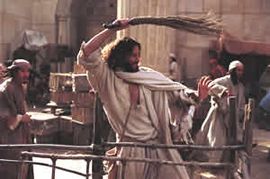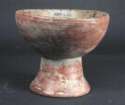
This week is one that is painful and powerful for me, because it is during this week that I am reminded of the bad aspects of human nature: fickleness, fair-weatheredness, peer pressure, cowardice. All of these were alive and well in Jesus’ day, and they are alive and well today. But it is also a week of gratitude - knowing what Christ did and does for us.
Holy Thursday is the “bridge” this week (it’s only called Maundy Thursday if you do a footwashing), and marks the beginning of the Triduum – the three days before Easter. Thursday allows us to recall the Passover and the simplicity of the actions and words of Jesus at the "Last Supper" that have gone on weekly for 2000 years (taking, blessing, breaking, and giving); the footwashing in Jerusalem that allowed Jesus to minister to the disciples and gave them the example of how to be in service. Good Friday is the painful reminder of the darkness and denial that Jesus faced. Holy Saturday causes us to hold watch and pray. And, on early Easter morning, we celebrate the empty tomb and Christ’s resurrection.
Holy Week services from years past remind me how moved and energized I am by such services. Services of footwashing instill in us humility and Christian service. Holy Communion feeds us with the soul food of Christ. Tenebrae services plunge us into holy darkness and call us to confront our bent to sinning and our own fear of darkness and abandonment.
Just as many of us stay up until midnight on December 31st to keep watch for the new year, Holy Week and the Maundy Thursday-Good Friday-Holy Saturday triduum provide us the opportunity to keep watch (and hopefully continue to watch) for Christ, and allow for our restoration and reconciliation to Christ and each other.
There are opportunities at many Paducah-area churches this week to observe Holy Week, including our own church. May our prayer life, our spirituality, and our salvation be shaped and informed by such observances, and convert and convince us toward a continuous watching for (and with) Christ.
Pax,
Sky+










